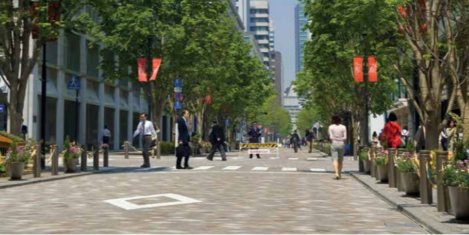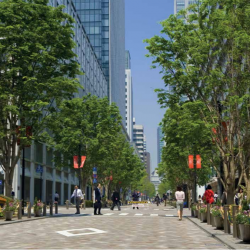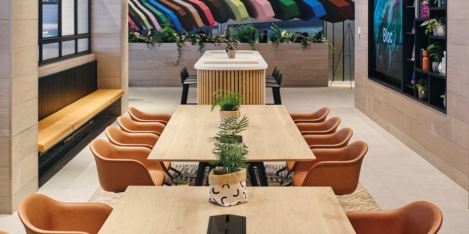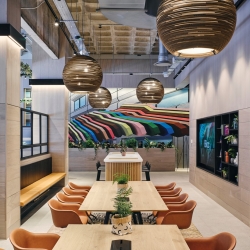To provide the best experiences, we use technologies like cookies to store and/or access device information. Consenting to these technologies will allow us to process data such as browsing behaviour or unique IDs on this site. Not consenting or withdrawing consent, may adversely affect certain features and functions.
The technical storage or access is strictly necessary for the legitimate purpose of enabling the use of a specific service explicitly requested by the subscriber or user, or for the sole purpose of carrying out the transmission of a communication over an electronic communications network.
The technical storage or access is necessary for the legitimate purpose of storing preferences that are not requested by the subscriber or user.
The technical storage or access that is used exclusively for statistical purposes.
The technical storage or access that is used exclusively for anonymous statistical purposes. Without a subpoena, voluntary compliance on the part of your Internet Service Provider, or additional records from a third party, information stored or retrieved for this purpose alone cannot usually be used to identify you.
The technical storage or access is required to create user profiles to send advertising, or to track the user on a website or across several websites for similar marketing purposes.
 A new report from the British Council for Offices urges landlords and office occupiers to invest in design for neurodiversity, as disabling workspaces continue to hinder wellbeing. The report examines how the neurodiverse community remains underserved and often unsupported in the current employment ecosystem, and in turn, outlines the considerations that built environment practitioners can take to make offices enabling environments, and the crucial role of more inclusive designs. More →
A new report from the British Council for Offices urges landlords and office occupiers to invest in design for neurodiversity, as disabling workspaces continue to hinder wellbeing. The report examines how the neurodiverse community remains underserved and often unsupported in the current employment ecosystem, and in turn, outlines the considerations that built environment practitioners can take to make offices enabling environments, and the crucial role of more inclusive designs. More →















 Research from?
Research from?


 The World Green Building Council (
The World Green Building Council (
 The
The 
 Pressing the ‘reset’ button is never easy. But I’m a firm believer that, once we do, we become much less averse than we perhaps expected to the change it inevitably brings. This is particularly true of the past eighteen months. From all of the sadness and hardship endured, we are beginning to emerge into a new, changed way of living. One that is both familiar and altogether different. The dichotomy is particularly evident in our workplaces. For many sections of the economy, the office was the ecosystem of our daily working lives. Initial questions of whether the office would survive quickly fell by the wayside, and a more interesting, nuanced, debate of what we want the office to be began.
Pressing the ‘reset’ button is never easy. But I’m a firm believer that, once we do, we become much less averse than we perhaps expected to the change it inevitably brings. This is particularly true of the past eighteen months. From all of the sadness and hardship endured, we are beginning to emerge into a new, changed way of living. One that is both familiar and altogether different. The dichotomy is particularly evident in our workplaces. For many sections of the economy, the office was the ecosystem of our daily working lives. Initial questions of whether the office would survive quickly fell by the wayside, and a more interesting, nuanced, debate of what we want the office to be began. 









April 12, 2022
Sustainable office design relies on everybody sharing knowledge
by Harsha Kotak • Comment, Environment, Workplace design